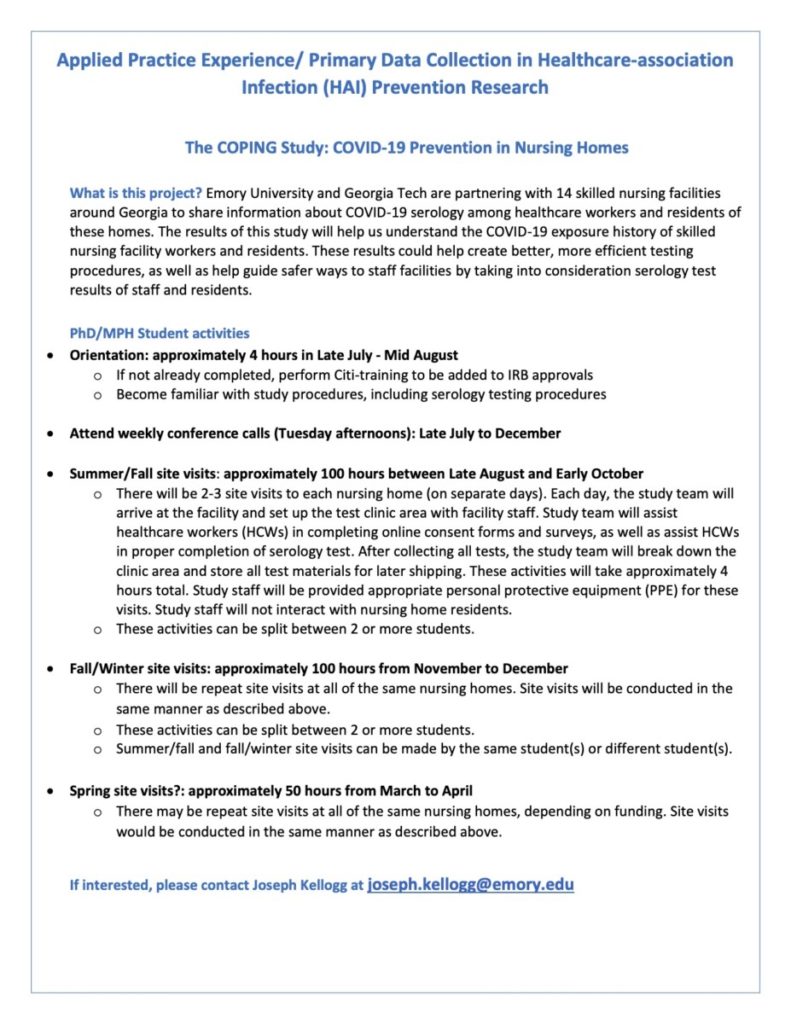COVID-19 Prevention in Nursing Homes APE Opportunity, Emory
Category : APE/ILE Student Opportunities
Opportunity Description
The COPING Study (COVID-19 Prevention in Nursing Homes) is an Emory University research study funded by the CDC that aims to examine COVID-19 serology among healthcare workers in nursing homes in Georgia. This APE opportunity is for Epi and BSHES masters students and primary data collection opportunity for Epi PhD students.
For this study, Dr. Scott Fridkin, the principal investigator, is looking for one or more students to assist with on-site data collection activities at participating nursing homes. All study staff, including any participating students, will be compliant with nursing homes’ requirements to be allowed on site.
See the flyer below for a more detailed description of the study and the position requirements.
How to Apply
-
If interested, please send an email expressing interest to Joseph Kellogg at joseph [dot] kellogg [at] emory [dot] edu

